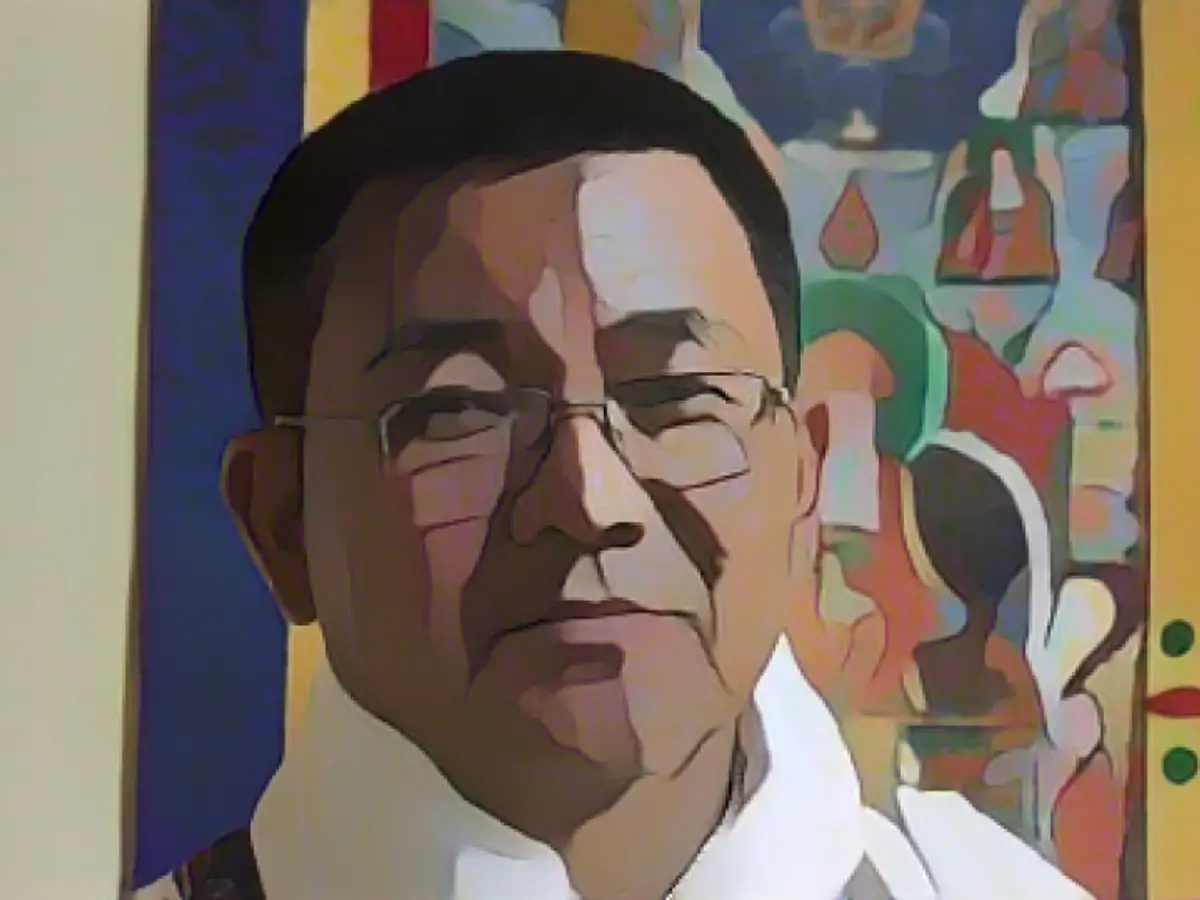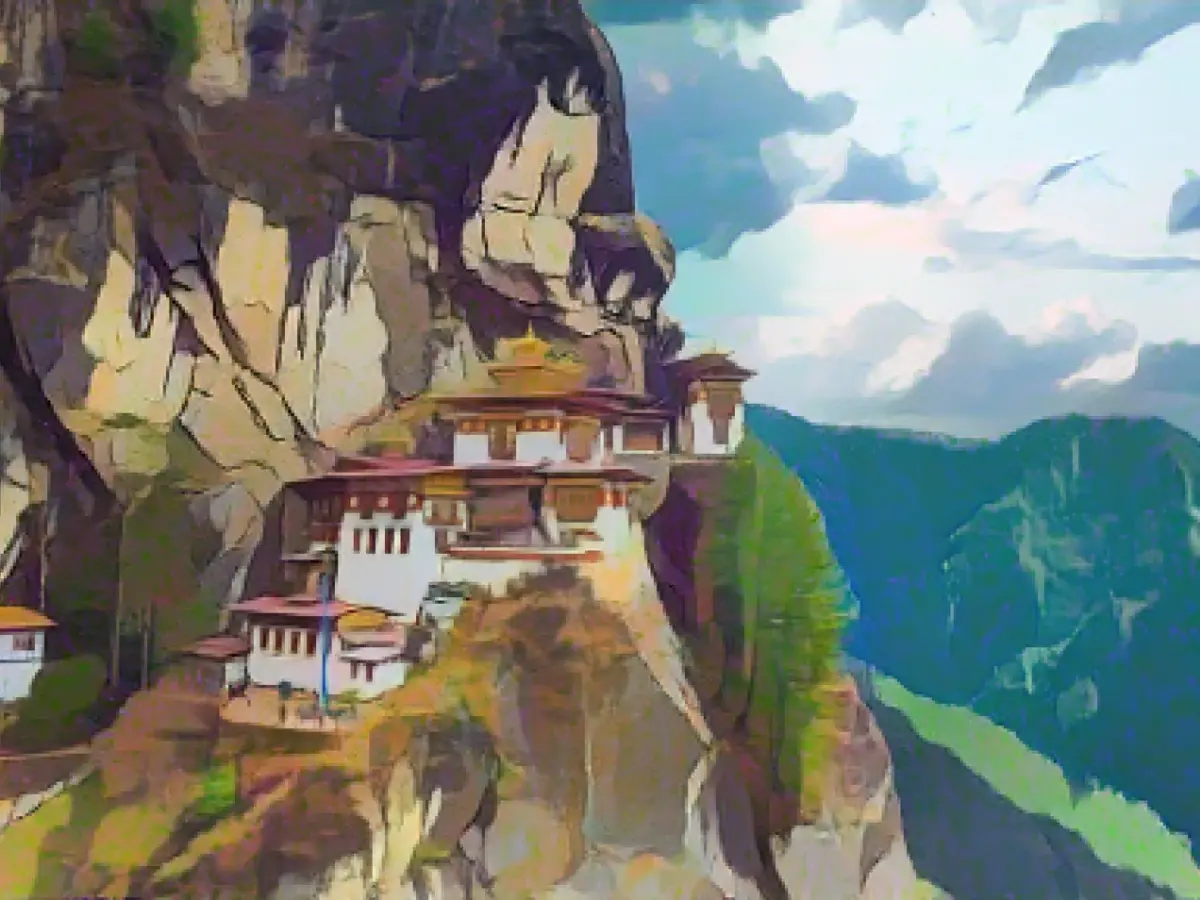Asia - Where happiness is worth more than money: a journey through the Kingdom of Bhutan
The Kingdom of Bhutan on the eastern edge of the Himalayas is an eternal mystery to most people. Although the country is slowly opening up to tourism, people want to do things differently there than in Nepal or India. The almost untouched nature consists of picturesque mountains and valleys - and is very close to the hearts of the almost 800,000 inhabitants. Just like happiness, which seems to be worth much more than money in this Buddhist country. But what is it like living and traveling through this undiscovered corner of the world? Dorji Dhradhul, the country's tourism minister, took us on a journey through his homeland in an interview with stern.
"Bhutan is a mixture of vibrant culture, breathtaking landscapes and exciting adventure activities," says the minister, promoting his country. And the more he talks about the place where he grew up, the clearer it becomes how important it is to him. The Drukpa, as the locals call themselves, are generally very attached to their homeland. It is not for nothing that the protection of the environment is enshrined in the constitution several times. For example, it stipulates that 60 percent of the country's land area must be forested, and there is also increasing investment in climate-friendly energy and accommodation.
However, environmental awareness also has an impact on tourism: "We want people to get to know Bhutan through its vibrant and historic cultural and Buddhist heritage as well as through activities such as hiking, trekking, bird watching, fishing (catch and release), water rafting and immersing themselves in local life," explains Dhradhul. This is also the reason for the strict regulation of visitor flows. This does not take place in the kingdom through limited offers, but is regulated by the price.
Bhutan makes vacations really expensive
A trip to Bhutan offers many opportunities, unique insights into a mysterious world - but also a big hole in the wallet. In addition to accommodation and meals, tourists have to pay an entry fee of 40 US dollars - and, for a good year now, a so-called "sustainable development fee" of around 200 euros per day. This also includes a guide, without whom you are not allowed to explore the kingdom anyway.

This may not sound very tempting at first. But: "With this strategy, Bhutan wants to minimize the negative effects of tourism, such as environmental destruction, cultural erosion and social upheaval," says at least the tourism minister. These are all things that many destinations from Spain to Asia are suffering from these days. And those who really want to experience Bhutan will not be deterred by the fees. After all, 115,000 visitors found their way there last year.
If the tourism minister has his way, there won't be many more in the coming years. But not less either, because the people are happy to welcome foreign visitors to show them their culture and the special features of their landscape. One thing you can definitely learn from the Drukpa is how they deal with happiness. In Bhutan, happiness is measured in the same way as gross domestic product is in Germany. So you might think - despite the high fees - happiness is worth more than money in the kingdom.
What happiness really means in Bhutan
The so-called Gross National Happiness consists of four pillars: Promoting sustainable development, preserving and promoting cultural values, conserving the natural environment and creating good governance. "But that doesn't mean that money doesn't play a role here. It simply means that the general well-being of the population is equally important and that it is the responsibility of the state to ensure that all conditions are in place for this," says Dhradhul.
The Drupka draw a lot of strength from their way of life and their culture. As a visitor, you can feel this in every corner of the kingdom. Be it on a visit to Paro Taktsang, probably the most famous Bhutanese monastery on the cliffs of the Himalayas. Or on a hike through Bumthang, the valley in central Bhutan, which is also known as the "Switzerland of Bhutan" due to its untouched mixture of magnificent mountains and lovely valleys.
"On an excursion to the highlands of Merak and Sakteng in Trashigang, travelers can get to know the unique way of life of the highlanders," adds the tourism minister. His highlights of a trip to Bhutan also include the historic Punakha Dzong fortress, the Gasa Hot Springs and the handicrafts of Khoma in Lhuentse.
Hospitality and tourists of choice
Although there are now a number of hotels in Bhutan, those who really want to get a feel for the way of life of the local people should stay with a host family: "Even though staying with a host family does not offer the comfort of hotels and resorts, you can take part in the daily rituals of the Bhutanese villagers and participate in the cultivation and harvest together with other farmers, pick seasonal fruit and vegetables and eat authentic Bhutanese dishes that have not been spoiled by restaurant recipes."
In Bhutan, the locals are happy to receive guests and often welcome them with open arms. However, you should not expect luxury there - if you stay with a farmer, you will get the nicest room, but often have neither internet nor hot water. The Bhutanis are not a rich people. Nevertheless, there are more and more locals who are opening their homes to visitors. This is also due to the fact that the government promotes local tourism projects and thus allows the locals to play an active role in shaping them. "This approach promotes a sense of responsibility among the locals and encourages them to actively protect and preserve their natural environment," says Dhradhul.
But the truth is that the people of Bhutan also have a clear idea of what tourists visiting their sacred land are like. According to the tourism minister, in addition to respecting the culture, which should be a matter of course everywhere in the world, it is also appreciated if people adapt their clothing: "The national costume, Gho for men and Kira for women, is of great cultural importance to us." Although there is no obligation to wear the costumes, it is encouraged. As is the observance of customs, such as this one: "We always circle religious structures in a clockwise direction." The phallic symbols that adorn many buildings in Bhutan should also not be interpreted too sexually - they serve more as protection against disgrace.
If you travel to Bhutan, you will have to dig deep into your pockets. In return, however, you will gain an insight into a world where many things are different. The environment has a higher priority than consumption and purchasing power, happiness is at least as important as money and otherwise people limit themselves to simple and peaceful coexistence. Yes, Bhutan is a luxury vacation, but without the superficialities. Instead, it offers untouched nature and authentic encounters. And perhaps exactly the place from which we can still learn a lot.
Read also:
- Germany has wanderlust: how tour operators and airlines are looking ahead to the next travel year
- Immigration: Blinken to travel to Mexico next week with high-ranking US delegation
- Driving home for Christmas: traffic tips to ensure your Christmas journey doesn't end in chaos
- "Real milestone": Baerbock travels to Rwanda for opening of Biontech plant
- The Kingdom of Bhutan, located on the eastern edge of the Himalayas, is opening up to tourism at a slower pace than neighboring countries like Nepal and India.
- Dorji Dhradhul, Bhutan's Tourism Minister, emphasized the importance of preserving the environment in his country, citing constitutional provisions that require 60% of the land to be forested and investments in climate-friendly energy and accommodation.
- The focus on the environment also impacts tourism, as Bhutan promotes its cultural and historical heritage, as well as activities like hiking, trekking, and bird watching, to attract visitors.
- Bhutan has strict regulations on tourist visits, controlling inflow not through limited offers but through a high entry fee of 40 US dollars and a daily "sustainable development fee" of about 200 euros.
- Despite the high cost, Bhutan receives around 115,000 visitors annually, and the Tourism Minister believes that this approach minimizes negative tourism impacts such as environmental destruction and cultural erosion.
- Travelers to Bhutan can interact closely with locals, staying with host families or partaking in daily village activities, ultimately contributing to a sense of responsibility among the locals and the preservation of Bhutan's unique environment.
Source: www.stern.de








